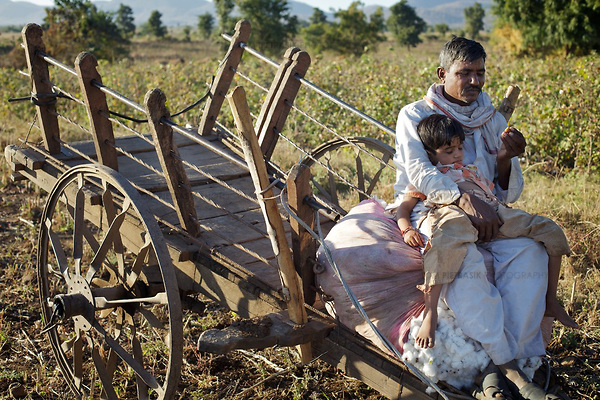Nearly 30,000 low-income cotton farmers in India stand to gain in terms of increased incomes by switching to organic cotton production, following a commitment made by two Japanese companies to the Business Call to Action (BCtA). BCtA is a global initiative that encourages companies to develop innovative business models that combine commercial success and sustainable development. It is supported by several international organizations including United Nations Development Programme (UNDP).

The two companies pledged to scale up their Pre-Organic Cotton (POC) programme, which encourages farmers in India to switch from conventional to organic cotton production by guaranteeing to buy the cotton that is organically produced at a price higher than that of conventional cotton. Through its commitment to BCtA, ITOCHU – which has114 offices in 65 countries – will work with Indian companies to identify farmers who are interested in switching to organic cotton farming. ITOCHU will then supply farmers with the necessary training and certified organic cotton seeds. The company further assists farmers by funding their certification fees and aiding them with administrative support during the conversion process.
Such a commitment is critical to the initiative’s success since it typically takes three years for farmers to obtain an organic certification; organic cotton costs more to produce but farmers are forced to sell it at cheaper, conventional cotton prices. During the three-year waiting period, the participating farmers will see a 20 to 30 per cent increase in their income, with a projected additional 12 per cent increase once their farms gain official international organic certification.
Companies such as ITOCHU and kurkku demonstrate the potential of innovative business partnerships to generate value for companies as well as communities, said Susan Chaffin, Programme Manager of the Business Call to Action. This new commitment to the BCtA, the first in recent years by a company from Japan, supports environmentally sustainable agriculture while at the same time increasing income for farmers in India.
Cotton occupies a mere five per cent of all farmland in India, yet it accounts for more than half of the country’s pesticide use, adding a financial burden to farmers and causing serious health concerns including skin and respiratory diseases. The conversion process to organic cotton remains financially unfeasible for most farmers, despite the financial and health benefits. Certification takes three years, during which time farmers experience a 20 to 30 per cent decrease in crop yields. Moreover, they are unable to sell the organically produced crops at organic prices due to the lack of certification. In addition to lost revenue, the certification process entails additional fees which are prohibitive for many farmers, especially in developing countries.
The BCtA commitment scales up the companies’ existing four-year partnership with Indian farmers, enabling an additional 9,500 families to transition to organic cotton production by 2015. The initiative is also expected to rid 30,000 acres of land from harmful agricultural chemicals while improving the farmers’ health.

